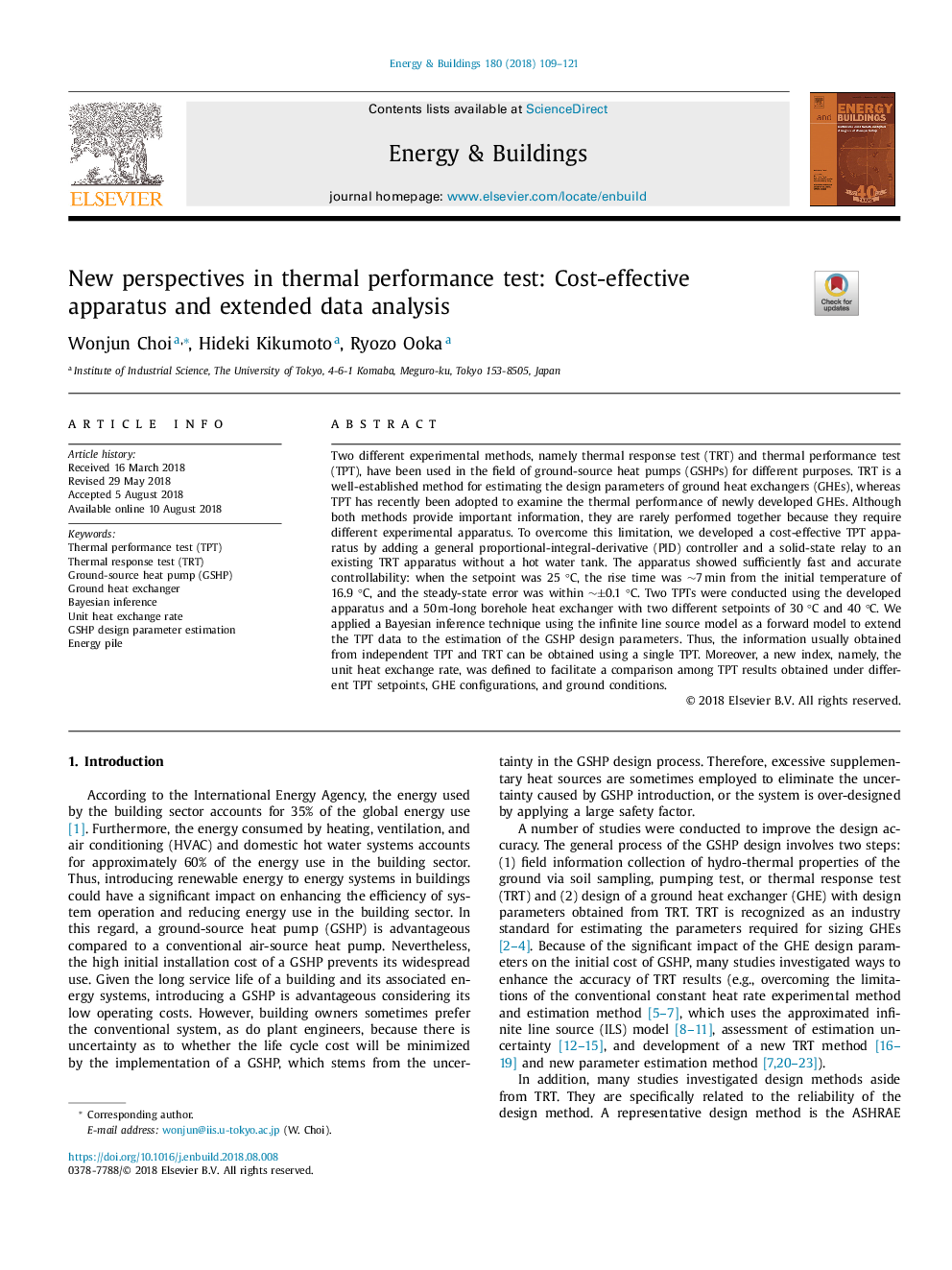| Article ID | Journal | Published Year | Pages | File Type |
|---|---|---|---|---|
| 11012599 | Energy and Buildings | 2018 | 13 Pages |
Abstract
Two different experimental methods, namely thermal response test (TRT) and thermal performance test (TPT), have been used in the field of ground-source heat pumps (GSHPs) for different purposes. TRT is a well-established method for estimating the design parameters of ground heat exchangers (GHEs), whereas TPT has recently been adopted to examine the thermal performance of newly developed GHEs. Although both methods provide important information, they are rarely performed together because they require different experimental apparatus. To overcome this limitation, we developed a cost-effective TPT apparatus by adding a general proportional-integral-derivative (PID) controller and a solid-state relay to an existing TRT apparatus without a hot water tank. The apparatus showed sufficiently fast and accurate controllability: when the setpoint was 25 °C, the rise time was â¼7â¯min from the initial temperature of 16.9 °C, and the steady-state error was within â¼Â±0.1 °C. Two TPTs were conducted using the developed apparatus and a 50â¯m-long borehole heat exchanger with two different setpoints of 30 °C and 40 °C. We applied a Bayesian inference technique using the infinite line source model as a forward model to extend the TPT data to the estimation of the GSHP design parameters. Thus, the information usually obtained from independent TPT and TRT can be obtained using a single TPT. Moreover, a new index, namely, the unit heat exchange rate, was defined to facilitate a comparison among TPT results obtained under different TPT setpoints, GHE configurations, and ground conditions.
Keywords
Related Topics
Physical Sciences and Engineering
Energy
Renewable Energy, Sustainability and the Environment
Authors
Wonjun Choi, Hideki Kikumoto, Ryozo Ooka,
